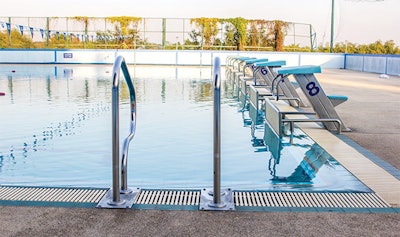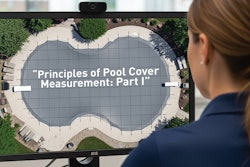
COVID-19 has sent shockwaves through the U.S. economy, and the pool and hot tub industry has been adjusting on the fly to a plethora of local strictures and social distancing imperatives. Fortunately, the Pool and Hot Tub Alliance is doing everything possible to ensure members continue to thrive through this pandemic and after. PHTA encourages members to visit PHTACoronaUpdate.com for an array of helpful resources.
“We realize this has been an extremely difficult time for our members,” says Jennifer Hatfield, PHTA vice president, Government Affairs & Codes. “For that reason, we have put a lot of time and effort into the resources on our website, providing as much guidance and assistance as we can. If you haven’t checked it out, I highly recommend you do so!”
CORONAVIRUS RESOURCES
The PHTA Coronavirus Resources page includes an abundance of valuable resources for pool and hot tub businesses struggling in these unprecedented times. “The Government Relations team has been working around the clock to analyze the impacts of COVID-19 and how they play out in each state,” explains Brendan Scanland, PHTA government relations manager. “It has been a task to say the least, as each state has a different executive order by the governor and different classifications as to what qualifies as essential and what does not.”
To help businesses quickly pinpoint information for their state, PHTA offers a State Exclusion Chart on its COVID-19 State and Local Government Information page. This breaks down what is essential and what is not in each state, including pool maintenance/servicing, construction, manufacturing, retail and wholesale/distribution.
Additionally, the website offers other beneficial state and local government resources, including how to write elected officials or state or local agency heads and how to find your legislator. There is also guidance as to why the pool and hot tub industry is essential and the public health risks that could occur if our industry is not classified as such.
RELATED: Pool and Hot Tub Reopening Guidance
“We also provide the action we have taken and share the letters PHTA submitted to several governors and other state leaders,” Hatfield explains. “These letters are a great source for members to reference when reaching out to state and local elected officials and health officials.”
PHTA’s Coronavirus Update page also includes a federal assistance section, which breaks down resources on the federal front. This includes info about coronavirus legislation, the CARES Act and Payroll Protection Program, as well as details about what PHTA has been doing to assist members at the federal level.
“We provided the letter we wrote to Congressional leaders in the House and Senate and hosted a Q&A webinar for members regarding the CARES Act, PPP and other COVID-19 concerns,” says Scanland. In addition to the website, PHTA also distributes weekly e-news updates with the latest details about state and federal developments, relief packages and SBA loan information.
Hatfield says they also have been working closely with the National Environmental Health Association and the National Drowning Prevention Alliance to provide guidance for public health departments and public pool operators/servicers facing this pandemic. “This first started with the goal to ensure all types of pools and spas are being maintained, even if closed to patrons,” she remarks. “There were three fliers developed with NEHA and NDPA explaining the public health hazards and safety risks associated with not maintaining pools or spas.”
PHTA has also addressed what reopening should look like. The association has seen a lot of confusion regarding if, when and how operators can open pools for the season and what they should do to make sure they are ready to open once they get the green light. “These are all common concerns, and we are working hard to provide health officials and our servicing members with best practices, so they can be ready to go when things get back to normal — and also reduce any potential negative financial impacts,” Scanland emphasizes.
“We have been taking a very proactive approach on COVID-19 related matters,” Hatfield adds. “We have sent dozens of letters to local, state and federal officials, explaining the importance of our industry.” She says they’ve also worked with members to establish state and local connections, which has helped PHTA establish communications with certain offices. “This has been, and continues to be, a crucial factor of our success.”
ONGOING STATE AND LOCAL INITIATIVES
While the pandemic has taken precedence in recent months, PHTA continues to work on a number of other state and local initiatives.
"A large number of the measures we come across have to do with amendments or adoptions of local and state building or electric codes,” Scanland explains, adding that most states or local jurisdictions update their codes every three years to the most recent editions. “Additionally, while doing so, they consider if any state or local amendments are warranted. Many states are currently looking to adopt the 2020 edition of the National Electrical Code and the 2018 editions of the various I-codes (developed by the International Code Council).”
According to Hatfield, PHTA supports adoptions of the latest editions of the NEC and I-codes. “What we specifically watch for are any local or state amendments to these national codes that would be inconsistent with our PHTA standards or national positions — but at the same time recognizing there are instances where a jurisdiction may require an amendment for various reasons,” she says.
For instance, before the pandemic took a front seat, PHTA was involved with fighting an effort in North Carolina related to the state’s adoption of the NEC. “There was a party interested in amending section 680.26(B)(2)(b) of the NEC, which allows for a copper wire alternative to the copper grid bonding requirement for inground pools,” Scanland says. “If we weren’t involved in advocating against this, with the help of local members and experts, then inground pools likely would not be allowed to use a copper wire in the state.” This issue is not slated to be resolved until their June meeting, where PHTA will continue to fight to allow both the wire and grid options.
RELATED: Introducing the Coronavirus Toolkit
The association also advocates for the latest code editions at the local and state level. “PHTA has worked closely with the International Code Council to co-develop the International Swimming Pool and Spa Code,” says Hatfield. “The ISPSC contains minimum requirements for public and private pool and spa construction. It is built off APSP/PHTA national consensus standards and coincides with the family of I-codes like the International Building Code, International Residential Code and more.”
In 2019, the state of Texas passed TX HB 2858, which requires any municipality in Texas that has a swimming pool/spa code to adopt the 2018 ISPSC. “PHTA worked with ICC and the Texas Pool and Spa Coalition to bring this advocacy effort across the finish line — a huge win for the industry in Texas,” says Scanland. “Just a few months ago, we saw a similar measure, UT HB 29, pass in Utah. In addition to these states, we’ve seen an increase of over 200 local adoptions of the ISPSC throughout the country. This is great news for the industry, especially those specializing in construction and manufacturing.”
The ISPSC provides transparency between builders and inspectors and incorporates the latest safety standards that ensure compliance with the federal Virginia Graeme Baker Act. “It has been proven to reduce drowning incidents, entrapment incidents and can even help the consumer save a few dollars by referencing energy efficiency standards,” Scanland adds.
“The bottom line is adoption of the ISPSC across the country provides the latest in building safety and technology, which drives the industry forward,” Hatfield says. “At the same time, this also helps eliminate a patchwork approach of code requirements, ensuring consistency that benefits the industry, consumers and inspectors.” To learn more about ISPSC adoption, visit www.apsp.org/advocacy/ispsc.
INDUSTRY ADVOCATES
In good times and bad, the PHTA Government Relations team is here to advocate for its members on the federal, state and local level. “PHTA has the resources to provide legislative, regulatory and local information unlike anybody else in the swimming pool and hot tub industry,” says Hatfield.
With a diverse, expansive member base scattered across the country, PHTA can get involved with almost anything pool or hot tub related in most jurisdictions. “Working with our chapters is another key in how we can tackle things at the grassroots level,” Scanland says. “This is why we are always looking for additional member engagement — it is the lifeline of PHTA’s governmental efforts and critical in advocating for measures that benefit the industry.”
According to Hatfield, PHTA’s members are critical to their success. “Part of the reason we get great things accomplished is because we have some really great members who are always willing to get involved and take the time out of their busy lives to assist in our efforts,” she says. “It is remarkable to see people so dedicated to their trade that they go above and beyond to take on that leadership role and advocate for every pool/spa industry professional in their state. The larger the industry presence we have at a local and state government level, the better and more successful our efforts will be.”








































